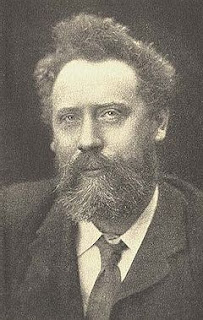
Invictus
Out of the night that covers me,
Black as the Pit from pole to pole,
I thank whatever gods may be
For my unconquerable soul.
Out of the night that covers me,
Black as the Pit from pole to pole,
I thank whatever gods may be
For my unconquerable soul.
In the first stanza the writer says in the dark to "whatever gods may be" a prayer of thanks for his "unconquerable soul." First, the speaker is in some sort of metaphorical darkness, perhaps the darkness of despair. Second, he does not pray for strength, but gives thanks for the strength that he already has. The word "Black" represents evil and "The Pit" represents Hell where the Devils are. It is seen and heard from "pole to pole" all over the world and the writer thanks the god for giving him an "Undefeatable" soul and the ability to move on through adversary
In the fell clutch of circumstance
I have not winced nor cried aloud.
Under the bludgeonings of chance
My head is bloody, but unbowed.
I have not winced nor cried aloud.
Under the bludgeonings of chance
My head is bloody, but unbowed.
In the second stanza, the writer does not talk about God's will or even fate; instead he speaks of "the fell clutch of circumstance" that is the word "fell" means bad or evil and "the bludeonings of chance," and indicates that he has overcome these bravely and without any help or complainings.
Beyond this place of wrath and tears
Looms but the Horror of the shade,
And yet the menace of the years
Finds, and shall find, me unafraid.
The third stanza is about death and what a trifle it seems to the speaker of the poem. This "place of wrath and tears", this life, it seems, is not full enough of pain and horror to frighten the reader and strong words such as "wrath" is anger and "tears" is pain. And death, "the Horror of the shade," could not possibly worry him, being an end to "wrath and tears". "Yet" he is not concerned in any way about death. Death is merely an end to suffering for our speaker.
It matters not how strait the gate,
How charged with punishments the scroll.
I am the master of my fate:
I am the captain of my soul.
In the 4th stanza, the writer talks about the the difficulties faced after death, and how "strait" means narrow in the biblical terms. No matter how narrow the "gate" or start of the journey, how "charged" or hard are the punishments of committing sins "punishments the scroll", the writer can do whatever he wishes to do but he must be careful of his doings "soul".
Looms but the Horror of the shade,
And yet the menace of the years
Finds, and shall find, me unafraid.
The third stanza is about death and what a trifle it seems to the speaker of the poem. This "place of wrath and tears", this life, it seems, is not full enough of pain and horror to frighten the reader and strong words such as "wrath" is anger and "tears" is pain. And death, "the Horror of the shade," could not possibly worry him, being an end to "wrath and tears". "Yet" he is not concerned in any way about death. Death is merely an end to suffering for our speaker.
It matters not how strait the gate,
How charged with punishments the scroll.
I am the master of my fate:
I am the captain of my soul.
In the 4th stanza, the writer talks about the the difficulties faced after death, and how "strait" means narrow in the biblical terms. No matter how narrow the "gate" or start of the journey, how "charged" or hard are the punishments of committing sins "punishments the scroll", the writer can do whatever he wishes to do but he must be careful of his doings "soul".
History of poem/Reflection
The poem was written while Henley was in the hospital being treated for tuberculosis of the bone, also known as Pott's disease. He had had the disease since he was very young, and his foot had been amputated shortly before he wrote the poem. This poem is about courage in the face of death, and holding on to one's own dignity despite the indignities life places before us. The poem shows the never give up attitude to go through thick and thin. Henley shows great determination in this poem, and reveals his character of him being a stubborn person, of never to give up. No matter how hard the fight, how deadly the consequences, we are the ones who can make it right. Like nowadays, in schools, many children come from poor families, unable to support the child's needs. But the childrem themselves must have the will to move on no matter what, otherwise they will not fit into the complicated society it is today. I feel that oneself's future is determine by his or her passion to achieve their dreams and hopes of becoming a better person.
Look up this video for the poem http://www.youtube.com/watch?v=5pJcwnS1c0I
Cheers :)
Ryan Lau

No comments:
Post a Comment